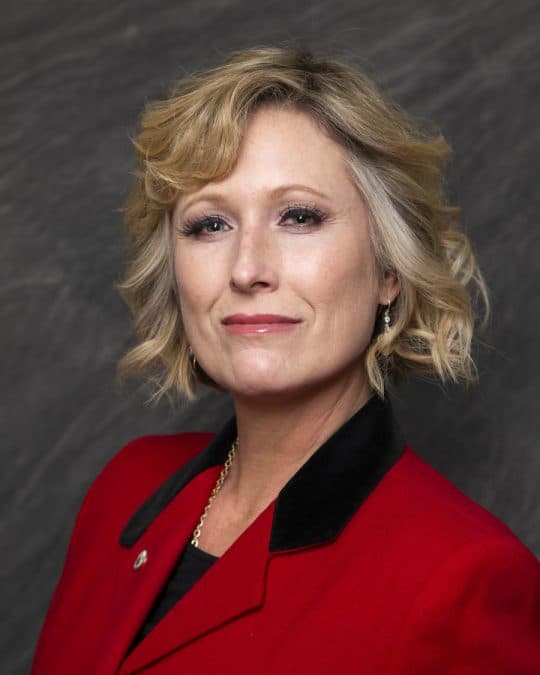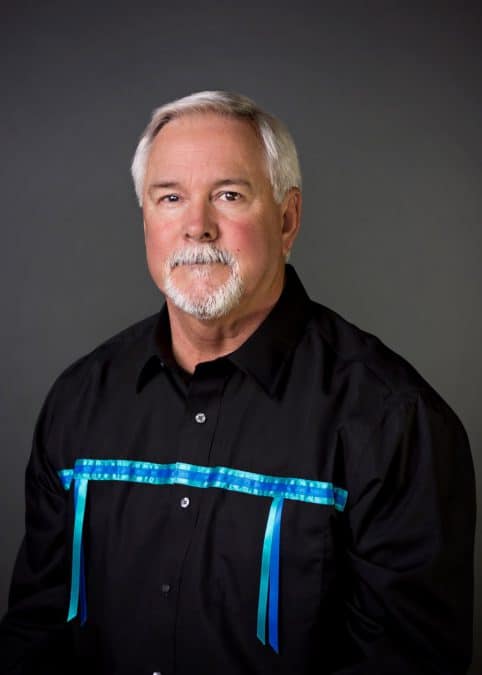In addition to the annual Tribal budget, Citizen Potawatomi voters will cast ballots for three competitive races for Oklahoma’s at-large legislative seats this June. The Hownikan asked the candidates about their backgrounds and reasons for running for Tribal office.
Lisa Kraft (incumbent)

How would you address the issue of growing Tribal enrollment? Is there a point where you believe it should be limited?
“Limiting our membership, under current demographics, is the farthest thing from my mind. We do not base Tribal enrollment criteria on blood-quantum for good reason; we are family through lineage. Our family grows day by day. This is a great thing for future leadership and our prosperity.
“A growing bona fide membership means more federal funding for our people. With more federal funds, we can invest our business profits in innovative growth and sustainable enterprises. I don’t see our 34,000 members as a crowded stadium. Rather, I see 34,000 people as individual rockets shooting for the stars.”
What are some specific ways you believe CPN can diversify investments?
“Before we can discuss investment diversification, we need a clear picture of what our current assets are, what our plans are, and a fair system of proposing initiatives that can make it to the floor for vote.
“I can’t sum this discussion up in 100 words but we need to close loopholes in existing federal regulations hampering our financial growth. For example, tribes are not allowed to participate in the phenomenal investment of Opportunity Zones even if O-Zones are in their jurisdictions. O-Zones afford tax shelters on capital gains for investors that want to invest in impoverished communities.”
Oklahoma legislators have a unique role as at-large representatives, what will you do to involve fellow Citizen Potawatomi in the governing process here?
“The executive officers set legislative branch spending. Oklahoma legislators do not get budgets to host meetings or have outreach offices like outside-Oklahoma legislators do. Oklahoma legislators communicate with Tribal members at-large in two ways: the annual heritage Festival and the executive branch’s newspaper (Hownikan).
“In fact, legislators are not allowed to participate in the internal budget hearings between directors, staff and the executive officers. Legislators do not propose amendments, reallocations, priorities, or budget cuts to our massive operating budget. This spending bill is formulated by the executive branch and then comes to the legislature to vote either for or against.”
How do you define leadership?
“Leadership is believing in something greater than one’s own benefit. It requires personal skills to advance ideals strategically, rally people to support and sustain those ideals, and the ability to materialize success of those ideals. The greater the success, the more people benefit and life gets better. Leadership is being able to weather political competition and change with grace when it leads to the greater good. Leadership is also having resolve to stand firm against tyranny, oppression, and corruption when it is unpopular, scary and dangerous. Simply put, leadership is a lifestyle, just like loyalty.”
John Tom Anderson (challenger)

How would you address the issue of growing Tribal enrollment? Is there a point where you believe it should be limited?
“The United States courts have recognized that unless legislation by Congress intervenes, an Indian tribe has complete authority to determine all questions of its own membership. Due to this fact, the manner in which we enroll Tribal members will stay constant until either the federal government or our own Tribal government pushes for change.
“I personally believe that our growing Tribal enrollment is healthy. CPN has managed well to provide services to Tribal members throughout our modern history. The change in CPN’s Constitution in 2007, provided for legislators to maintain outreach to all members.”
What are some specific ways you believe CPN can diversify investments?
“What I have discovered about CPN’s basic business model is it manages all enterprises with their own capital and resources. The Tribe totally owns all enterprises and economic endeavors. Looking forward it may be time for CPN to examine their business and operating models to find a solution that will enable a change in performance of their economic development. Increased profit advantages can spill over to improved services to our people.”
Oklahoma legislators have a unique role as at-large representatives, what will you do to involve fellow Citizen Potawatomi in the governing process here?
“Our Anderson family members have been active with CPN for years. We have come to regional and district meetings, annual Family Festivals, naming’s, gatherings … participating at every opportunity. As a legislator, these opportunities will only increase. I am prepared to embrace other CPN members in helping them know and understand the rich culture and heritage that my own family has experienced as Tribal members.”
How do you define leadership?
“I believe that true leaders lead by example. The successful leaders will tell you that their success is due to the competent people they have surrounding them. A real leader’s legacy is when they are gone, their teachings move forward. People who are decision makers and make the right, common sense choices, usually rise to the top and are able to lead people in the right directions.”
Christina Brasfield (challenger)

How would you address the issue of growing Tribal enrollment? Is there a point where you believe it should be limited?
“Tribal enrollment is based on descendancy and that is fair, logical and practical. The strength of our Tribe comes from our members. As our Tribe grows, so does our sphere of influence. To make this influence more impactful, we should focus on improved education to open more opportunities to our members.
“In regards to growing enrollment, we must understand that we coexist on Mother Earth and human overpopulation is a serious threat. Ideally we would walk through this life leaving only footprints and our lasting impact would resonate through planned, future generations.”
What are some specific ways you believe CPN can diversify investments?
“I am fortunate to occasionally travel for work and I meet many interesting people who are open to partnering with Native Americans and tribes in their ventures.
“I would like to see an increased focus on technology that provides remote work opportunities for our tribal members. This includes data centers, technology incubators, being our own ISP, or partnering with technology companies.
“When I was in Las Vegas at the Reservation Economic Summit, tribes were diversifying through building low-risk apartment complexes and by extension, hotels.
“We should also invest in our members and their businesses. Their success would be the Tribe’s success.”
Oklahoma legislators have a unique role as at-large representatives, what will you do to involve fellow Citizen Potawatomi in the governing process here?
“We should educate our members on our governing process, proactively reach out to them for feedback, connect members to encourage discussion, and make participation easy and seamless. A feedback loop is critical to avoid a sole focus on what is best for the Tribe and not forget we are here for our members.
“We must tackle barriers for entry that prevent people from participating. Such as:
- Not understanding how the process works;
- Not understanding how they fit into the process;
- A feeling that their voice and feedback is not heard;
- A feeling of uncertainty and that they do not belong.”
How do you define leadership?
“No one ever advanced standing still. Leadership should be progressive and in the best interest of the constituents and keeping lines of communication open. Decision making is a key part of leadership, but it should always be based on an informed opinion of the constituency.
“Leadership means being accessible, responsive, and have a clear understanding of the issues. “Leadership is bringing about the change we all want to see in this world.”
